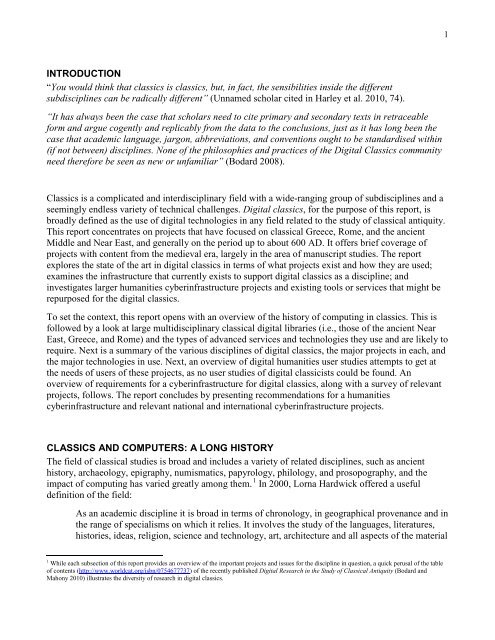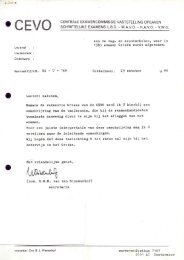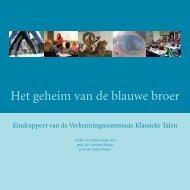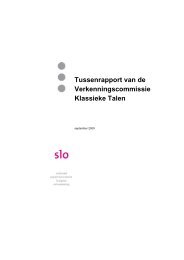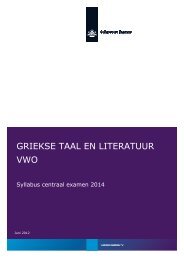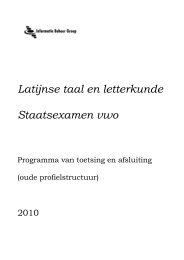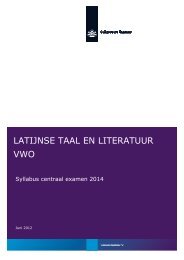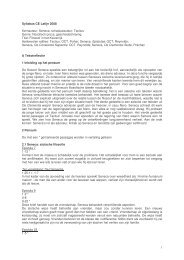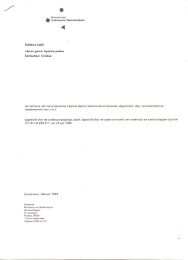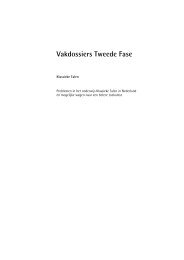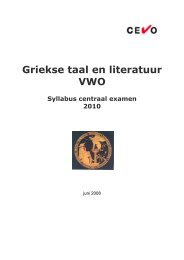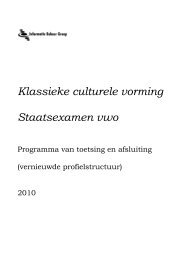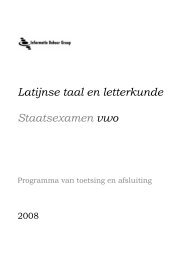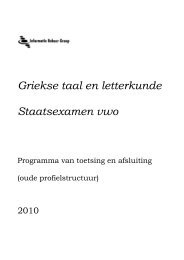Rome Wasn't Digitized in a Day - Council on Library and Information ...
Rome Wasn't Digitized in a Day - Council on Library and Information ...
Rome Wasn't Digitized in a Day - Council on Library and Information ...
Create successful ePaper yourself
Turn your PDF publications into a flip-book with our unique Google optimized e-Paper software.
1<br />
INTRODUCTION<br />
“You would th<str<strong>on</strong>g>in</str<strong>on</strong>g>k that classics is classics, but, <str<strong>on</strong>g>in</str<strong>on</strong>g> fact, the sensibilities <str<strong>on</strong>g>in</str<strong>on</strong>g>side the different<br />
subdiscipl<str<strong>on</strong>g>in</str<strong>on</strong>g>es can be radically different” (Unnamed scholar cited <str<strong>on</strong>g>in</str<strong>on</strong>g> Harley et al. 2010, 74).<br />
“It has always been the case that scholars need to cite primary <strong>and</strong> sec<strong>on</strong>dary texts <str<strong>on</strong>g>in</str<strong>on</strong>g> retraceable<br />
form <strong>and</strong> argue cogently <strong>and</strong> replicably from the data to the c<strong>on</strong>clusi<strong>on</strong>s, just as it has l<strong>on</strong>g been the<br />
case that academic language, jarg<strong>on</strong>, abbreviati<strong>on</strong>s, <strong>and</strong> c<strong>on</strong>venti<strong>on</strong>s ought to be st<strong>and</strong>ardised with<str<strong>on</strong>g>in</str<strong>on</strong>g><br />
(if not between) discipl<str<strong>on</strong>g>in</str<strong>on</strong>g>es. N<strong>on</strong>e of the philosophies <strong>and</strong> practices of the Digital Classics community<br />
need therefore be seen as new or unfamiliar” (Bodard 2008).<br />
Classics is a complicated <strong>and</strong> <str<strong>on</strong>g>in</str<strong>on</strong>g>terdiscipl<str<strong>on</strong>g>in</str<strong>on</strong>g>ary field with a wide-rang<str<strong>on</strong>g>in</str<strong>on</strong>g>g group of subdiscipl<str<strong>on</strong>g>in</str<strong>on</strong>g>es <strong>and</strong> a<br />
seem<str<strong>on</strong>g>in</str<strong>on</strong>g>gly endless variety of technical challenges. Digital classics, for the purpose of this report, is<br />
broadly def<str<strong>on</strong>g>in</str<strong>on</strong>g>ed as the use of digital technologies <str<strong>on</strong>g>in</str<strong>on</strong>g> any field related to the study of classical antiquity.<br />
This report c<strong>on</strong>centrates <strong>on</strong> projects that have focused <strong>on</strong> classical Greece, <str<strong>on</strong>g>Rome</str<strong>on</strong>g>, <strong>and</strong> the ancient<br />
Middle <strong>and</strong> Near East, <strong>and</strong> generally <strong>on</strong> the period up to about 600 AD. It offers brief coverage of<br />
projects with c<strong>on</strong>tent from the medieval era, largely <str<strong>on</strong>g>in</str<strong>on</strong>g> the area of manuscript studies. The report<br />
explores the state of the art <str<strong>on</strong>g>in</str<strong>on</strong>g> digital classics <str<strong>on</strong>g>in</str<strong>on</strong>g> terms of what projects exist <strong>and</strong> how they are used;<br />
exam<str<strong>on</strong>g>in</str<strong>on</strong>g>es the <str<strong>on</strong>g>in</str<strong>on</strong>g>frastructure that currently exists to support digital classics as a discipl<str<strong>on</strong>g>in</str<strong>on</strong>g>e; <strong>and</strong><br />
<str<strong>on</strong>g>in</str<strong>on</strong>g>vestigates larger humanities cyber<str<strong>on</strong>g>in</str<strong>on</strong>g>frastructure projects <strong>and</strong> exist<str<strong>on</strong>g>in</str<strong>on</strong>g>g tools or services that might be<br />
repurposed for the digital classics.<br />
To set the c<strong>on</strong>text, this report opens with an overview of the history of comput<str<strong>on</strong>g>in</str<strong>on</strong>g>g <str<strong>on</strong>g>in</str<strong>on</strong>g> classics. This is<br />
followed by a look at large multidiscipl<str<strong>on</strong>g>in</str<strong>on</strong>g>ary classical digital libraries (i.e., those of the ancient Near<br />
East, Greece, <strong>and</strong> <str<strong>on</strong>g>Rome</str<strong>on</strong>g>) <strong>and</strong> the types of advanced services <strong>and</strong> technologies they use <strong>and</strong> are likely to<br />
require. Next is a summary of the various discipl<str<strong>on</strong>g>in</str<strong>on</strong>g>es of digital classics, the major projects <str<strong>on</strong>g>in</str<strong>on</strong>g> each, <strong>and</strong><br />
the major technologies <str<strong>on</strong>g>in</str<strong>on</strong>g> use. Next, an overview of digital humanities user studies attempts to get at<br />
the needs of users of these projects, as no user studies of digital classicists could be found. An<br />
overview of requirements for a cyber<str<strong>on</strong>g>in</str<strong>on</strong>g>frastructure for digital classics, al<strong>on</strong>g with a survey of relevant<br />
projects, follows. The report c<strong>on</strong>cludes by present<str<strong>on</strong>g>in</str<strong>on</strong>g>g recommendati<strong>on</strong>s for a humanities<br />
cyber<str<strong>on</strong>g>in</str<strong>on</strong>g>frastructure <strong>and</strong> relevant nati<strong>on</strong>al <strong>and</strong> <str<strong>on</strong>g>in</str<strong>on</strong>g>ternati<strong>on</strong>al cyber<str<strong>on</strong>g>in</str<strong>on</strong>g>frastructure projects.<br />
CLASSICS AND COMPUTERS: A LONG HISTORY<br />
The field of classical studies is broad <strong>and</strong> <str<strong>on</strong>g>in</str<strong>on</strong>g>cludes a variety of related discipl<str<strong>on</strong>g>in</str<strong>on</strong>g>es, such as ancient<br />
history, archaeology, epigraphy, numismatics, papyrology, philology, <strong>and</strong> prosopography, <strong>and</strong> the<br />
impact of comput<str<strong>on</strong>g>in</str<strong>on</strong>g>g has varied greatly am<strong>on</strong>g them. 1 In 2000, Lorna Hardwick offered a useful<br />
def<str<strong>on</strong>g>in</str<strong>on</strong>g>iti<strong>on</strong> of the field:<br />
As an academic discipl<str<strong>on</strong>g>in</str<strong>on</strong>g>e it is broad <str<strong>on</strong>g>in</str<strong>on</strong>g> terms of chr<strong>on</strong>ology, <str<strong>on</strong>g>in</str<strong>on</strong>g> geographical provenance <strong>and</strong> <str<strong>on</strong>g>in</str<strong>on</strong>g><br />
the range of specialisms <strong>on</strong> which it relies. It <str<strong>on</strong>g>in</str<strong>on</strong>g>volves the study of the languages, literatures,<br />
histories, ideas, religi<strong>on</strong>, science <strong>and</strong> technology, art, architecture <strong>and</strong> all aspects of the material<br />
1 While each subsecti<strong>on</strong> of this report provides an overview of the important projects <strong>and</strong> issues for the discipl<str<strong>on</strong>g>in</str<strong>on</strong>g>e <str<strong>on</strong>g>in</str<strong>on</strong>g> questi<strong>on</strong>, a quick perusal of the table<br />
of c<strong>on</strong>tents (http://www.worldcat.org/isbn/0754677737) of the recently published Digital Research <str<strong>on</strong>g>in</str<strong>on</strong>g> the Study of Classical Antiquity (Bodard <strong>and</strong><br />
Mah<strong>on</strong>y 2010) illustrates the diversity of research <str<strong>on</strong>g>in</str<strong>on</strong>g> digital classics.


